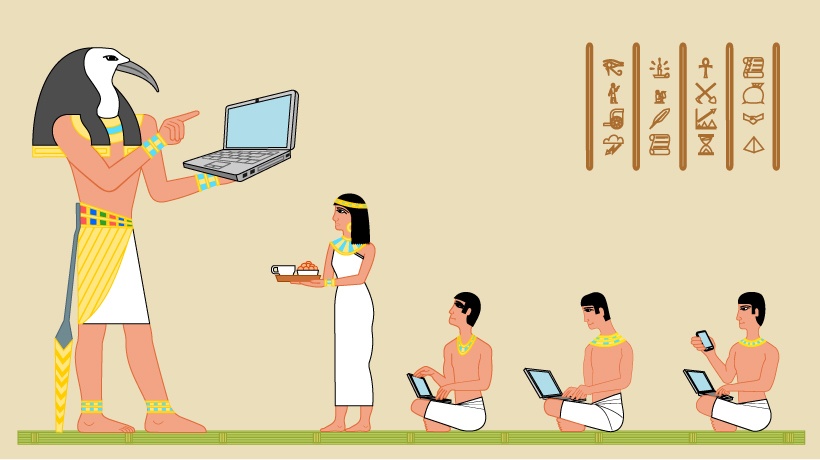Assessment And Learning
Assessment is the key to learning and understanding; it is not the same as grading. The goals of both grading and assessment are different. When you grade a learner, you evaluate his/her learning and limit the person's qualities within the realms of digits or alphabets. On the contrary, when you conduct an assessment, you expand the boundaries and go beyond grading; as an instructor, you start examining patterns in their performance along a timeline. These patterns enable the efforts to fill learning gaps to be a more fruitful intervention, for both the learner as well as the instructor.
Hence, a broad difference can be:
- Grading is for assessment of learning—to assess a learner on a summative and final level.
- Assessment is related to assessment for learning—to assess a learner on various formative and developmental levels (Earl, 2003).
Conducted during the process of instruction (both face-to-face and eLearning) while providing ongoing feedback, assessment should aid in improving achievements for better student outcomes. The keywords we need to focus on right here are "during instruction" and "feedback." All those assessment activities have to be undertaken by both the teachers/instructors as well as students. The activities must not be isolated by the teacher or eLearning module for the sole purpose of grading. Both instructors and learners must partake in the process together.
Hence, feedback provides:
- Learners with information about their learning gaps and how to improve accordingly in the following activities, allowing the feedback to act as feedforward.
- Instructors with information about a student's extent of understanding in the ongoing activities, which makes room for modifications to learning activities. (Black & William, 1998).
Myths And Facts
1. Product, Not A Process
Assessment must be considered a verb and not a noun. A verb describes a process, something that is ongoing; while a noun by itself affirms assessment to be a product, which it should not. Assessment tasks must be let out as learning tasks in the learning process, involving the learners in the process.
Instead:
Always have feedback loops instilled in your plan/process in the form of statements or activities as a part of assessments. They ensure fruitful reinforcement of the learned information.
2. Just Google/Bing It!
Rephrasing E.D Hirsch’s words, according to cognitive psychology, it takes knowledge to gain knowledge. Spellings, important dates, grammar, times tables, state capitals, symbols of elements on a periodic table, etc. are just a fraction of information that we are expected to store in our long-term memory as a part of our "broad knowledge." Without access to such a broad knowledge base in our brains, one cannot go choose to go deeper.
Instead:
Separate ideas, which a learner might be required to know for broader application, into questions that answer: "What is it?" "Why is it crucial for something?" "What all can we do with it?" etc. Provide regular exercise to their brains through research-oriented techniques, such as the spacing or testing effects. Once these ideas are affixed in the mind, the students can venture into "how it is done" and "how not to do it" kinds of questions by looking them up.
3. Grades Motivate Learning
Society has evolved its mindset over time and has agreed in consensus that no child must be left behind. In such a case, grading and marking create an unnecessary deviation from learning and incite (more unhealthy than a healthy) competition.
Instead:
Gamify your assessment experiences by having a leaderboard and giving out badges for completion. Small, sustainable rewards such as free books and online subscriptions related to the study and field can also do the trick.
4. Read To Revise
Another common misconception that we as learners have is that reading and re-reading improve our learning. Perusing the content over and over again will not lead to better recall or comprehension.
Instead:
Self-assess and space out reading, inculcating a deliberate practice into your routine. Solve questions and test banks instead of passively browsing through your notes, highlighted words, or underlined concepts.
5. Assessment Means Testing
Calling assessments a test is unfair in many aspects. Going by the dictionary meaning, test also means trying out something or experimenting. When you assess the learning of your users/learners, you are definitely not conducting a trial to find errors.
Instead:
Start naming them explicitly as assessments, pitstops, or knowledge checks and not "tests" or "worksheets" in your learning design or instructional plan.
All in all, every individual has his/her own style of learning. There is no doubt about the fact that if a particular method suits you, you might choose to continue. But, before relying on something staunchly, you might want to reconsider some of the options and taste a different dish every once in a while. You never know what gem of a practice might be hidden under those research findings!
References:
- Black Earl, L. (2003). Assessment of learning, for learning and as learning. Assessment as learning: Using classroom assessment to maximise student learning.
- Black, P., & Wiliam, D. (1998). Assessment and classroom learning. Assessment in Education: principles, policy & practice, 5(1), 7-74.
- Christodoulou, D. (2014). Seven myths about education. Routledge.
- Wiggins, G. (2015, March 4).5 unfortunate misunderstandings that almost all educators have about Bloom's Taxonomy.









